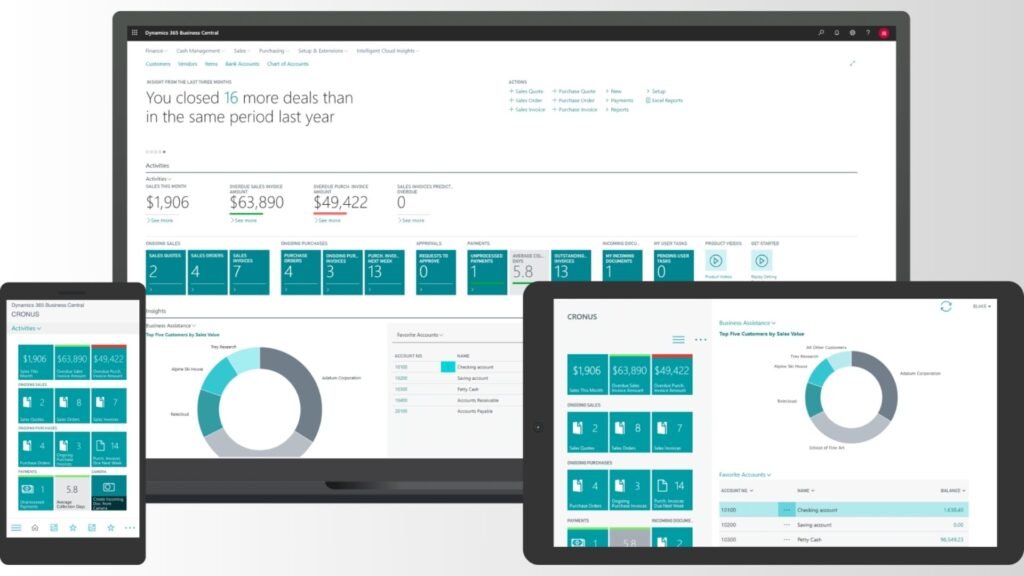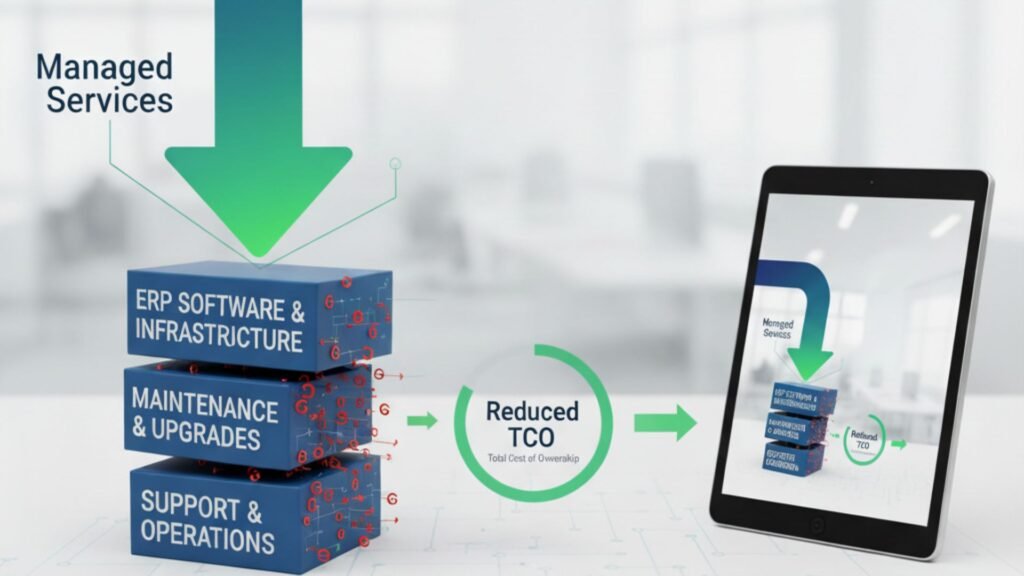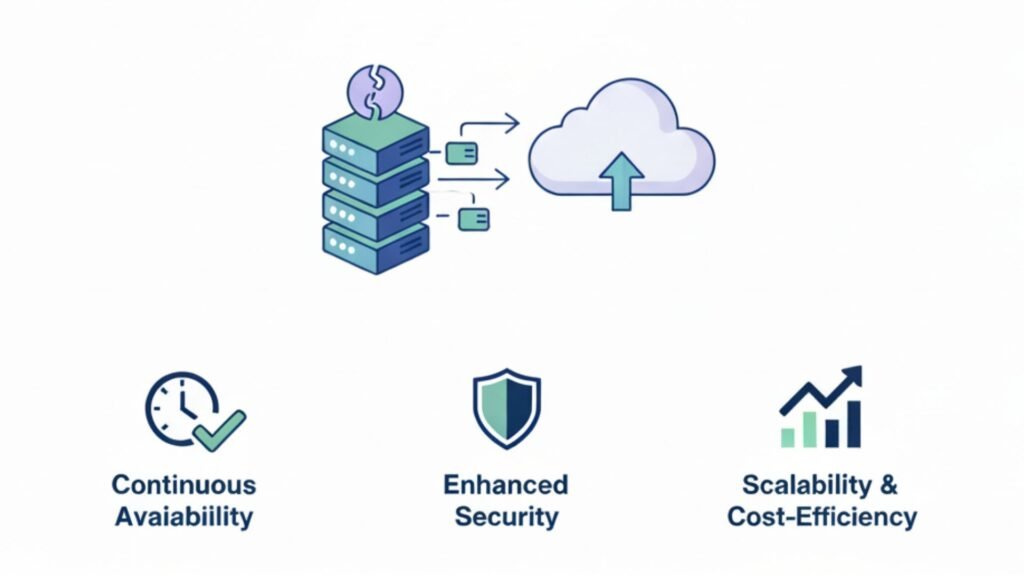Top Challenges in Renewable Energy Manufacturing & How ERP Solves Them
The renewable energy sector stands at the forefront of global efforts to combat climate change and transition to sustainable power sources. However, manufacturers in this industry face a unique set of challenges that can hinder growth and operational efficiency. Enterprise Resource Planning (ERP) systems, particularly Microsoft Dynamics 365, offer comprehensive solutions to address these obstacles. Key Challenges in Renewable Energy Manufacturing 1. Complex and Global Supply Chains Renewable energy manufacturing often involves intricate supply chains that span multiple countries. Managing suppliers, logistics, and inventory across diverse regions can lead to delays, increased costs, and quality control issues. The complexity is further exacerbated by the need to source specialized components like solar panels, wind turbine blades, and battery storage systems. 2. Regulatory Compliance and Sustainability Reporting Manufacturers must navigate a labyrinth of local, national, and international regulations concerning environmental standards, emissions, and sustainability practices. Failing to comply can result in hefty fines, project delays, and reputational damage. Moreover, the pressure to provide transparent sustainability reports is intensifying, requiring robust data management systems. 3. High Capital Costs and Long ROI Cycles The capital-intensive nature of renewable energy projects means that manufacturers often face extended periods before realizing returns on investment. This financial strain can impede the ability to scale operations, invest in research and development, or adopt new technologies. 4. Rapid Technological Advancements The renewable energy sector is characterized by swift technological innovations. Manufacturers must continuously adapt to new materials, production techniques, and energy storage solutions to remain competitive. This rapid pace can lead to challenges in workforce training, equipment upgrades, and process optimization. 5. Skilled Labor Shortages A significant barrier to growth in renewable energy manufacturing is the shortage of skilled labor. The industry requires specialized knowledge in areas such as solar panel installation, wind turbine maintenance, and battery technology. However, the current workforce often lacks the necessary training, leading to inefficiencies and increased operational costs. How Microsoft Dynamics 365 ERP Addresses These Challenges 1. Streamlining Supply Chain Management Microsoft Dynamics 365 offers integrated modules that provide real-time visibility into supply chain operations. Features like demand forecasting, supplier management, and inventory optimization help manufacturers mitigate risks associated with global sourcing. For instance, Dynamics 365 enables proactive identification of supply chain disruptions, allowing for timely interventions. 2. Ensuring Regulatory Compliance and Sustainability The ERP system includes built-in tools for tracking and reporting on environmental metrics, emissions, and compliance with industry standards. By automating data collection and reporting processes, Dynamics 365 reduces the risk of human error and ensures timely submission of compliance documents. Additionally, integration with Microsoft Sustainability Manager leverages AI to analyze energy consumption patterns and recommend efficiency improvements. 3. Optimizing Financial Management Dynamics 365 Finance provides advanced budgeting, forecasting, and financial analysis tools tailored for the renewable energy sector. These capabilities enable manufacturers to manage cash flow effectively, assess project viability, and make informed investment decisions. The system’s scalability ensures that financial operations can grow in tandem with the business. 4. Facilitating Technological Adaptation The platform’s modular architecture allows manufacturers to adopt new technologies and processes without disrupting existing operations. For example, Dynamics 365 can integrate with Internet of Things (IoT) devices to monitor equipment performance in real-time, facilitating predictive maintenance and reducing downtime. This adaptability ensures that manufacturers can swiftly respond to technological advancements. 5. Addressing Skilled Labor Challenges Dynamics 365 includes Human Resources modules that assist in workforce planning, training, and development. By identifying skill gaps and providing tools for employee development, the ERP system helps manufacturers build a more competent and adaptable workforce. Additionally, integration with Microsoft 365 tools supports collaborative learning and knowledge sharing among employees. Selecting a Microsoft Dynamics 365 Partner in the USA Implementing Microsoft Dynamics 365 requires expertise to ensure alignment with business objectives and seamless integration into existing workflows. Choosing the right partner is crucial for a successful deployment. In the USA, several certified Microsoft Dynamics 365 partners specialize in the renewable energy sector: KUMAVISION: Specializes in ERP solutions for energy project developers, offering industry-specific functionalities for project management and financial oversight Ellipse Solutions: Offers tailored solutions for solar, wind, and geothermal energy projects, focusing on site development, construction, and maintenance. Dynamics Square: Provides end-to-end ERP implementation services, including consulting, customization, and support, with a strong track record in the energy industry. Conclusion The renewable energy manufacturing industry faces multifaceted challenges that require integrated solutions. Microsoft Dynamics 365 ERP provides a robust platform to streamline operations, ensure compliance, optimize financial management, facilitate technological adaptation, and address workforce development. By partnering with experienced ERP consultants, manufacturers can leverage these capabilities to enhance efficiency, reduce costs, and drive sustainable growth in the renewable energy sector. For organizations seeking to implement or upgrade their ERP systems, engaging with a certified Microsoft Dynamics 365 partner in the USA is a strategic step towards achieving operational excellence and long-term success.
Top Challenges in Renewable Energy Manufacturing & How ERP Solves Them Read More »












